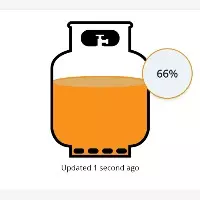Fractional reserve banking backs the non-reserve fraction with loan assets. Running a mint with deficient reserves, without backing the deficiency with assets, is theft.
When you deposit money in a bank account, you are lending money to the bank to earn interest on. Theoretically, they give you banking services and a nominal interest rate in exchange. The bank lends this out, and if those funds wind up back in their own bank, they can lend against this again. If there is a business cycle, everyone loses their jobs and can't pay on the loans, those loans are "forgiven" after the collatoral is liquidated. What is left over is where "natural" inflation comes from. This is the slippery slope of fractional reserve banking, and why they are required to limit their "money printing" with a minimum reserve amount set by regulators (the Fed).
When you deposit bitcoin in a fedimint, you are trusting the federation to custody your sats for you, not as a loan, not with promise of paying interest, not with expectation the sats will be invested. The agreement is one of bailment, not banking. If the mint removes the sats from the vault without redeeming fedi tokens, they are breaking the agreement. This is theft. To enforce this agreement in court would be difficult because there is no explicit mechanism to pay a fee to the mint operators for this service, and there is no written contract for services. This is a goodwill agreement, which requires an enormous amount of trust and this may work fine in many situations.
Learn what fractional reserve banking means (not you Jack) before equating what a bank does with what Uncle Jim does.

Brunswick
npub1c8…q6lkc
2024-07-08 18:34:14
in reply to nevent1q…jr0d
Author Public Key
npub1c856kwjk524kef97hazw5e9jlkjq4333r6yxh2rtgefpd894ddpsmq6lkcPublished at
2024-07-08 18:34:14Event JSON
{
"id": "2ccfb515b4ac27bfcb9fbeea8021569fbd1a4902066106eb85961e0616890cae",
"pubkey": "c1e9ab3a56a2ab6ca4bebf44ea64b2fda40ac6311e886ba86b4652169cb56b43",
"created_at": 1720456454,
"kind": 1,
"tags": [
[
"e",
"61e4701b23511af13e863b97377b22019cfbedb737614c7c02a7055194177b66",
"",
"root"
],
[
"e",
"7402333de939968d149ba2856a10f39c1d28473f4cddbcb41b498f5a65652151"
],
[
"e",
"c076b732330f3a748cc75aa60aa66f604b45374067ebc007967807b0190dc193",
"",
"reply"
],
[
"p",
"a1fc5dfd7ffcf563c89155b466751b580d115e136e2f8c90e8913385bbedb1cf"
],
[
"p",
"8ea485266b2285463b13bf835907161c22bb3da1e652b443db14f9cee6720a43"
]
],
"content": "Fractional reserve banking backs the non-reserve fraction with loan assets. Running a mint with deficient reserves, without backing the deficiency with assets, is theft.\n\nWhen you deposit money in a bank account, you are lending money to the bank to earn interest on. Theoretically, they give you banking services and a nominal interest rate in exchange. The bank lends this out, and if those funds wind up back in their own bank, they can lend against this again. If there is a business cycle, everyone loses their jobs and can't pay on the loans, those loans are \"forgiven\" after the collatoral is liquidated. What is left over is where \"natural\" inflation comes from. This is the slippery slope of fractional reserve banking, and why they are required to limit their \"money printing\" with a minimum reserve amount set by regulators (the Fed). \n\nWhen you deposit bitcoin in a fedimint, you are trusting the federation to custody your sats for you, not as a loan, not with promise of paying interest, not with expectation the sats will be invested. The agreement is one of bailment, not banking. If the mint removes the sats from the vault without redeeming fedi tokens, they are breaking the agreement. This is theft. To enforce this agreement in court would be difficult because there is no explicit mechanism to pay a fee to the mint operators for this service, and there is no written contract for services. This is a goodwill agreement, which requires an enormous amount of trust and this may work fine in many situations.\n\nLearn what fractional reserve banking means (not you Jack) before equating what a bank does with what Uncle Jim does.",
"sig": "c5f9ffe1e8abaf5f8eb3e2bdd56a2e21e74cd14dc8c7d213e10f2d5de8aa91fa147954f8831b0ac769c2e10591f1154b5b74e3126534c944e7c0c38231e1b008"
}